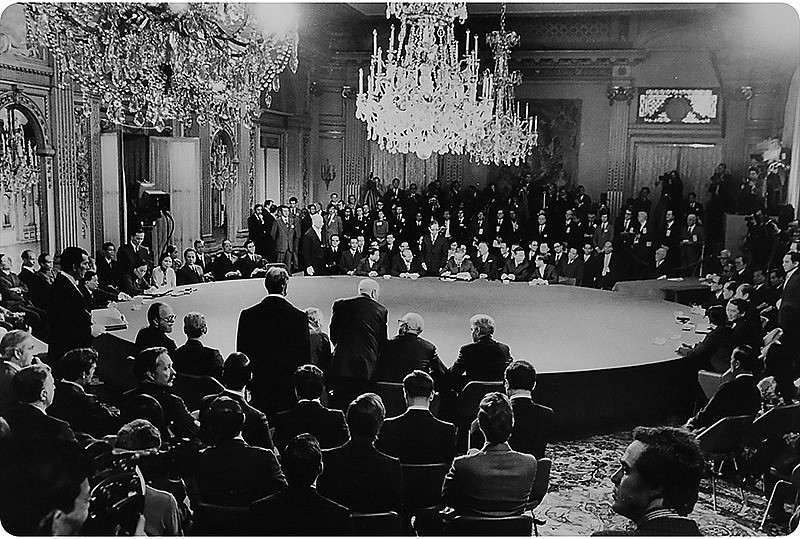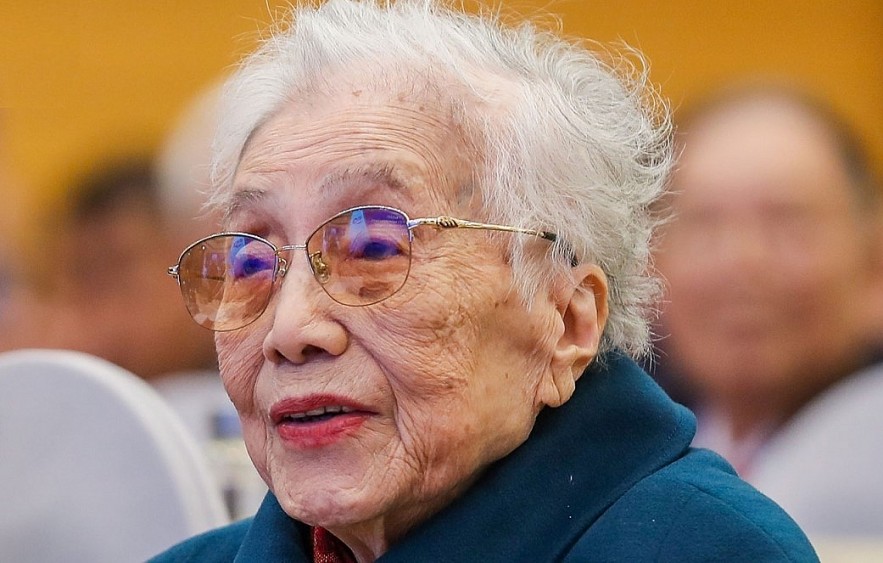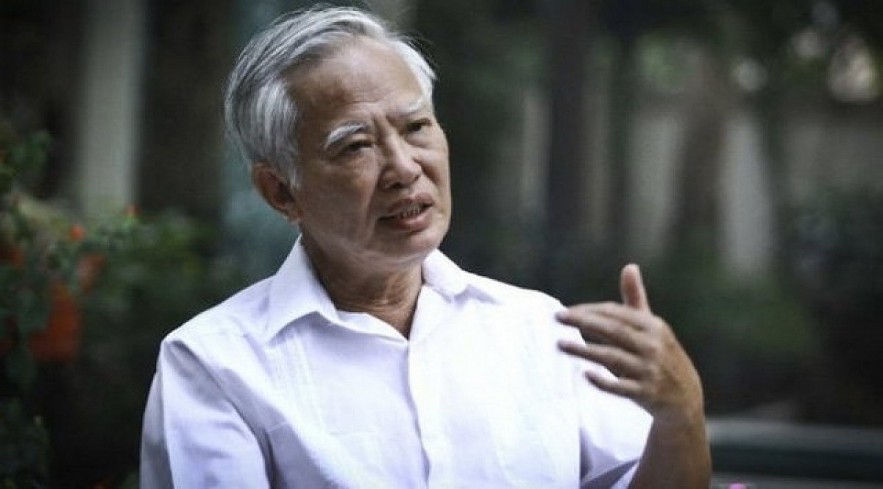 |
| The signing ceremony of the the Paris Agreement on Ending the War and Restoring Peace in Vietnam. (File Photo) |
The Paris Agreement is the first most complete and comprehensive international legal document recognising the fundamental rights of Vietnamese people and is international recognition of Vietnam’s independence, unification, and territorial integrity.
This great victory is the crystallisation of the unwavering struggle of the Vietnamese people on the military, political and diplomatic fronts.
Running for nearly five years from 1968 to 1973, the Paris negotiations on Vietnam involving the governments of the Democratic Republic of Vietnam (North Vietnam), the Republic of Vietnam (South Vietnam), the United States, and the Provisional Revolutionary Government of the Republic of South Vietnam, went through a total of 201 public sessions, 45 high-level private meetings between Vietnam and the US, roughly 500 press conferences, and some 1,000 interviews.
Historical documents highlight that in all public joint sessions, as well as private contacts, during the Paris negotiations, Vietnamese negotiators did not miss any issues concerning the war in Indochina. Their arguments insisted that the US army and its allies in the Asia-Pacific region withdraw from southern Vietnam and respect the civil rights, the basic national rights, and the right to self-determination of the people in southern Vietnam, according to the VOV.
Ultimately, the agreement, among provisions, called for the withdrawal of all US and allied forces, a ceasefire to be put in place in southern Vietnam, the reunification of Vietnam through peaceful means without coercion or annexation by either party and without foreign interference, and US financial contributions to healing the wounds of conflict in Indochina.
The Paris Agreement is strategically significant in that it created a new situation for the Vietnamese armed forces and people to advance and topple the Saigon regime, with the pinnacle being the historic Ho Chi Minh Campaign that fully liberated the southern region and reunified the country, opening an era of peace, independence, unification, and development in Vietnam.
Vivid memories
 |
| Nguyen Thi Binh, former Foreign Minister and former head of the Delegation of the Provisional Revolutionary Government of the Republic of South Vietnam to the Paris conference.Photo: VOV |
Nguyen Thi Binh, former Foreign Minister and former head of the Delegation of the Provisional Revolutionary Government of the Republic of South Vietnam to the Paris conference, said at the end of 1968 she received instructions from the Party to participate in the Paris negotiations. After nearly five years of negotiations, she completed her duties as one of the four signatories to the Paris Agreement.
“The Paris Agreement was a decisive victory leading to the liberation of the South and reunification of the country, the result of nearly 20 years of fierce war and arduous struggle of the whole nation,” recalled the 95-year-old politician.
According to Binh, the Paris Agreement represented a victory for Vietnamese diplomacy, a military and political victory and a victory for peace-loving and progressive movements worldwide.
“It is the result of the strong solidarity and support of the world, bringing strength to Vietnam on the battlefield as well as at the negotiating table,” Binh said, adding that the decisive factor behind the success of the Paris Agreement was the ingenious leadership of President Ho Chi Minh and the Party and State leaders.
Journalist Ha Dang, former member of the Party Central Committee and a member of the negotiating team of the Provisional Revolutionary Government of the Republic of South Vietnam, said the US’s signing of the Paris Agreement placed Nguyen Thi Binh in her position as Foreign Minister on a par with then US Secretary of State William Roger. This also showed the US recognition of the Provisional Revolutionary Government of the Republic of South Vietnam.
Incumbent Foreign Minister Bui Thanh Son said throughout the negotiation process, the principle of independence and self-reliance continued to be upheld. The Vietnamese negotiating team, including advisor Le Duc Tho, effectively and creatively applied President Ho Chi Minh’s thoughts of “Keeping calm to respond to unexpected changes” at the negotiating table.
“With sharp thinking, rich experience and tactical skills, Le Duc Tho and the negotiating team excellently turned the victory on the battlefield into victory on the negotiating table. This victory is one of the pinnacles of Vietnamese diplomatic intelligence,” said Minister Son.
Invaluable historical lessons
Half a century after the Paris Agreement was signed, scientific studies and assessments made by Vietnamese and foreign experts show that the 1973 Paris Agreement marked a landmark victory in the history of Vietnamese diplomacy. The agreement also brought about several valuable lessons with profound contemporary significance for the country’s diplomacy, including grasping the situation and seizing upon opportunities.
“First, you need to evaluate the situation, know yourself, and know your enemy. Second, we need to seize opportunities. Third, we need a wise strategy, clearly defining the primary and the secondary. In my opinion, we were very creative in our diplomacy,” stated Binh.
 |
| Vu Khoan, former Deputy Prime Minister and former Deputy Foreign Minister. |
Former Deputy Prime Minister and former Deputy Foreign Minister Vu Khoan said the agreement offers plenty of lessons for Vietnamese diplomacy, including a lesson about cooperation, consistency, perseverance, and shrewdness.
According to official documents from the Paris negotiations, thousands of rallies and demonstrations against the war and in support of Vietnam broke out in many parts of the world, including in the US. The anti-war and pro-Vietnam movement became a great source of encouragement for the nation both on the battlefield and at the negotiating table, resulting in the Paris Agreement and subsequent victory of the 1975 Spring General Offensive which ultimately liberated the south and reunified the country.
Not only was it a victory for the Vietnamese people, the Paris Agreement was also a victory for peace-loving people around the world, helping to reinforce the confidence of the oppressed people in the righteous struggle for independence, freedom, peace and justice. The victory of the Paris Agreement and the US withdrawal from Vietnam made significant contributions to the Lao and Cambodian people’s liberation cause, helping to open a new period in Southeast Asia – a period of peace and stability, closing the past and looking towards building the ASEAN Community.
The nearly five years of unwavering struggle on the military, political and diplomatic fronts to reach the victory of signing the Paris Agreement left many profound lessons of great meaning to the current situation. They are the lessons of a consistent foreign policy of independence and self-reliance, for the benefit of the country and people; national unity and international solidarity, the combination of national strength with the strength of the time; and proactiveness and activeness in building the diplomatic force, in which cadre is a key part.
And above all is the lesson about the Party’s unified and absolute leadership over the Vietnamese people’s revolutionary cause in the general, especially the diplomatic front.
The lessons from the Paris Conference – a heroic stage in Vietnamese history – are valuable properties for Vietnam to firmly advance to the period of international integration, deepening the friendship and cooperation with all partners in a stable and sustainable manner, thereby reinforcing and enhancing the country’s position and strength. Implementing the Party’s reform guideline on foreign relations, Vietnam has reaped many proud achievements in foreign relations and diplomacy.
From a state of being embargoed, Vietnam has built and cemented its open external relations of multilateralisation and diversification conducive for the cause of reform. Vietnam has the means to create a favourable international environment and has mobilised external resources to step up industrialisation, modernisation and socio-economic development. In the past years, external relations have played a pioneering role in ensuring a peaceful and stable environment, making an important contribution to firmly defending the country’s independence, sovereignty, unification, and territorial integrity.
Vietnam’s position and reputation in the region and the world are increasingly enhanced, helping to maintain peace, development cooperation and progress in the world. Such results have made significant contributions to the country’s historic achievements after more than 30 years of reform. Vietnam has become a middle-income country with enhanced international position and reputation, socio-political stability, a dynamic economy, independence, sovereignty and territorial integrity, and an improved standard of living, said the Nhandan.
Half a century have passed since the signing of the Paris Agreement but the lessons from this glorious period have remained valuable today, becoming the philosophy and consistent viewpoint in the Party and State’s foreign policy during the cause of reform, national development, and defence today.
We strongly believe that building on the spirit and outcome of the Paris Conference, Vietnam will continue to record greater and more comprehensive achievements during the current cause of reform and international integration and stay firm on the path towards socialism.
Painting contest held for buffaloes joining ploughing festival in Ha Nam
A buffalo painting contest for the Doi Son Tich Dien (ploughing) Festivalwas held on February 10, or the sixth day of the Lunar New Year in Doi Son commune, Duy Tien district, the northern province of Ha Nam.








